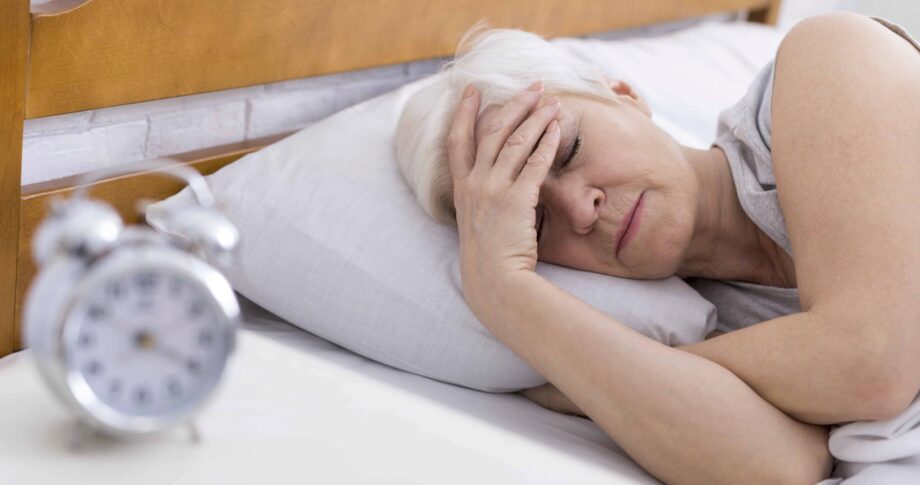Sleep and Aging: What is The Correlation?
Disclosure: By clicking on the product links in this article, Mattress Nerd may receive a commission fee at no cost to you, the reader. Read full disclosure statement.
Getting enough shut-eye can often be a challenge for many of us; in fact, the Centers for Disease Control and Prevention considers sleep deprivation an epidemic taking the entire American population by storm. But what is good sleep, how much do we need, and how does our sleep change as we age?

New research has started to emerge that not getting enough sleep can be more dangerous than we ever thought possible. Studies are starting to conclude that missing out on vital hours of sleep are as big of a risk factor as obesity and chronic stress for determining a person’s likelihood for developing chronic medical conditions in the future.
There are several reasons for this. When we take the time to rest and recover our bodies adequately after a long day of activity, we are able to recharge our mind and body. Our bodies need this adequate amount of rest to be able to operate at our best level. A lack of sleep doesn’t just drain us of energy though, but instead can cause our brains to function at a less productive level. This can cause our fine and gross motor skills to not work at an optimal rate and has a negative impact on everything from our immune responses, hormone activity, and even fertility.
Age and Sleep Problems
When we are younger many of us take getting an adequate amount of sleep for granted. As people age the lasting impact of sleep deprivation starts to feel more apparent. When people age their sleep patterns can begin to become more and more fragmented. This is because as we age, irregular sleep patterns and sleep disorders start to become much more common.
Along with distorted sleep problems becoming more typical with age, we also find that sleep disorders like restless leg syndrome, insomnia, sleep apnea, and REM disorders are prominent within the elderly population. Studies show that over half of elderly people suffer from insomnia and many do not seek treatment. Sleep disturbances can happen at all ages, but the elderly population is one of the groups most affected by it.
Why are Irregular Sleep Habits so Prevalent in the Senior Population?
It goes back to the circadian rhythm, specifically how our bodies regulate temperature and melatonin levels. Sleep schedules and wake times are affected as we age due to a decrease in body temperature and changes in homeostatic sleep pressure.
Our bodies have two main stages of sleep called NREM and REM. NREM is composed of our light stages of sleep, while REM is dispersed throughout the night in two hours increments. Research has shown that as we age, our efficiency and total time asleep decreases. We are also more likely to be woken up more easily from any sounds or movement in the night.
So how can we learn to improve our sleep habit and aim to stay asleep longer as we get older? Not everyone will be the same when it comes to how they need to prepare their sleep space; however, there are some common behavioral changes that you can help improve your insomnia.
Sleep Tips for Older Adults
- Make your bedroom dark at night. When our eyes see light, we’re programmed to get up and get moving – so turning off all extra lights and blue light distractions (such as TV, cell phones, and even reading from an iPad) will help to get your circadian rhythm on the right track.
- Limit alcohol and caffeine, and especially within a few hours of trying to rest. Alcohol may feel like a sedative, but it actually disrupts sleep and makes it harder for your body to enter into vital REM sleep.
- Exercise is another fabulous way to try and maintain better sleep habits as you get older to decrease any anxious energy you have held onto from throughout the day. However, be aware of when you decide to exercise. Working out too late in the evening and then trying to go to bed might be a disturbance for some people so try to keep your workouts to the morning and early afternoon.
- Lastly, consider giving natural sleep aids a try. Natural sleep aids like lavender or camomile are considered to be less addictive than prescription pills, but still help you feel tired. Speak with your physician first to make sure that they do not interfere with any medications you’re currently taking.
Sleep has a powerful impact on all of us, regardless of age. Therefore, it’s important to pay attention to the quality of your sleep and do your best to maintain positive sleep habits as you get older. Not only will this help keep you well-rested and at peak performance, but it will also help to improve your overall health and well-being as a whole.


